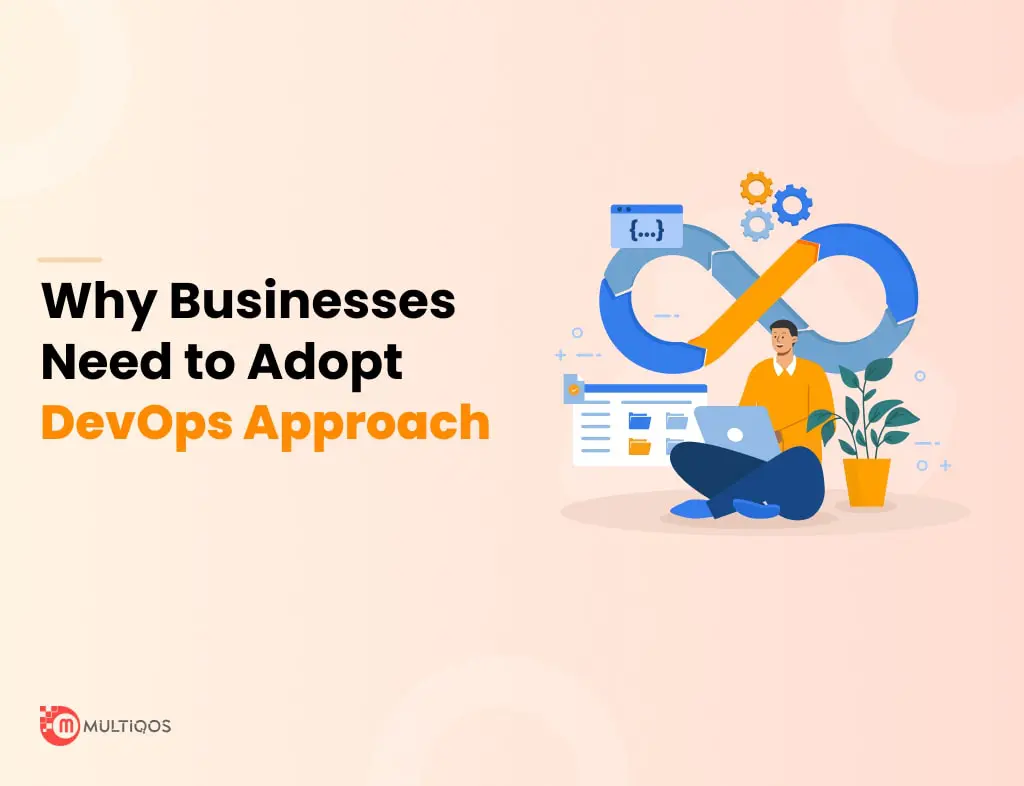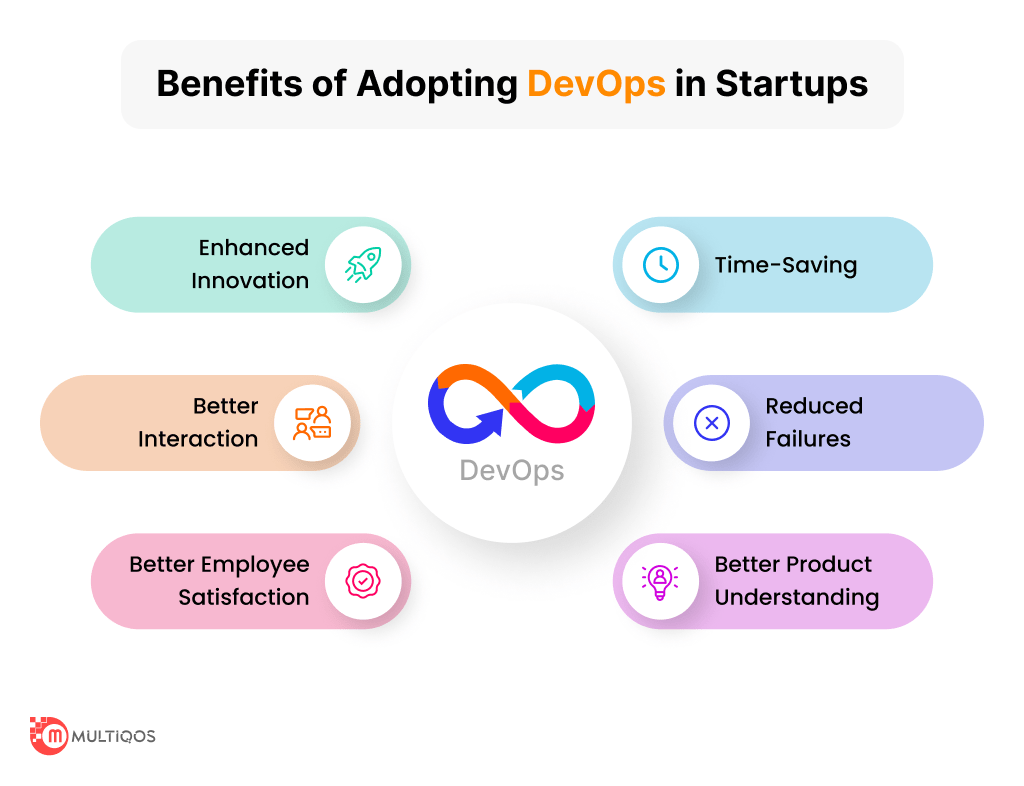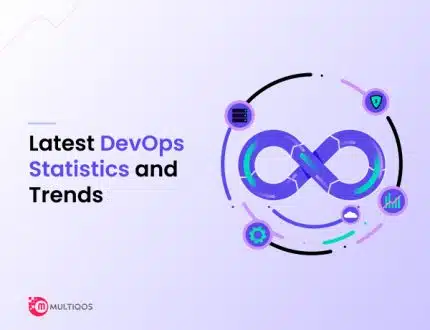Why Your Startup Business Must Adopt a DevOps Approach

Overview
Organizations have implemented the DevOps Model for various product developmental projects over the past decade. With a market value of $8 billion in 2022, this comparatively recent compound group of techniques has shown significant growth in popularity. The union of IT operations and software development (Dev) produced the phrase “DevOps” (Ops).
In 2007, the phrase started to gain popularity because of the work of individuals like Gene Kim, John Willis, and Patrick Dubois. The most talented programmers and operational experts came together in online forums to confront the inefficiencies of conventional development practices, giving rise to DevOps services. Since then, businesses have benefited from DevOps’ advantages for expanding and developing their operations.
Here’s more on why your business should be adopting the DevOps approach:
Why Does a Startup Need DevOps?
The DevOps paradigm may be effective for your design and development process. We get your hesitancy; therefore, we’ve compiled some arguments for why Companies Adopt a DevOps Mode. To begin with, organizations that do not employ the DevOps technique frequently develop data silos due to the separation of teams creating the product.
However, it would be best if you embraced a working DevOps Transformation to consolidate and combine information. In addition, every project that calls for constant updates and deployments must use a DevOps methodology. Instead, you need to catch up to your competition in terms of time taken to market.
DevOps advantages for startup companies include lowering obstacles and accelerating the launch schedule, enabling you to save money on your projects. Additionally, as DevOps prioritizes the customer’s needs, you will receive insightful input that will boost your company’s profits.
What are the Benefits of Adopting DevOps in Startups?
You will undoubtedly be persuaded to incorporate the new techniques into your system once you comprehend the benefits of DevOps for startup companies. In the following guidelines, we’ll go over how DevOps benefits your organization.
1. Enhanced Innovation
Adopting a DevOps model in startups significantly reduces the amount of time. It may take a solution to hit the market, encouraging more innovation quickly, collaborating cooperatively in smaller clubs, and eliminating duplication with automation technologies.
It will speed up the development, implementation, and modification of projects. With such close collaboration, issues can be dealt with as they emerge, are made more straightforward, and are easier to improvise on the spot, leading to speedier solutions.
2. Time-Saving
Speeding things up is among the main benefits of DevOps for new organizations. The DevOps-managed services fasten the innovation process by fostering collaboration and interaction. The production and operational teams increase the rate of code deployments into the manufacturing environment.
When adopting the traditional technique, businesses must wait between three and six months between the requirement and the product’s availability. Meanwhile, the same round may be shortened for startup companies using DevOps to their daily cycle.
In some circumstances, an instantaneous discharge cycle. Your business will benefit from the competitive edge that continual creation and delivery offer by time-saving and delivering superior results.
3. Better Interaction
The potential of DevOps Managed Services is to build a link between the two specialties to improve their ability to work together. Instead of attempting to eliminate their disparities is a considerable advantage for a company. Software design processes are modernized so that the culture prioritizes group achievement above individual goals.
With trust and understanding, software and operational teams may explore, investigate, and produce more effectively. There’s no more place to throw the entire application at a wall and hope for the best. The application framework becomes more fluid as each team member works to accomplish the same goals.
4. Reduced Failures
The fundamental goal of DevOps Solutions is to provide the best technology solutions and an exceptional user encounter to target consumers. The essential idea is for businesses to provide it with greater discipline, pace, and adaptability.
DevOps helps organizations enhance the user experience by offering innovative solutions very rapidly, among its benefits for startups.
5. Employee Satisfaction Enhancement
Instead of a rule- or strength company culture, DevOps promotes one that is more achievement. As a result, organizational obstacles are lowered, and collateralization is promoted. Your crew becomes happier and more efficient, consequently boosting your business’s efficiency.
Programmers and operational engineers often prefer DevOps transformations because they enable multitasking and increased productivity. They are more knowledgeable about how their role fits into the larger picture of IT and the general organization of the business. As a consequence, they increase in value and marketability.
6. Better Product Understanding
The most significant challenge for software companies is the need for a shared understanding of research and development. Underneath the traditional setup, several teams receive scant details about the product.
DevOps, on the other hand, involves multiple teams working together to complete various tasks, which makes it very simple to comprehend the details regarding the product and enables separate teams to always have additional information on the market from outside their particular and limited field of expertise.
For example, a programmer may gather information on the product’s performance for customers, enabling him to build a plan to enhance certain aspects like scalability, availability, etc.
What Makes DevOps Different from the Traditional Software Development Approach?
In the conventional software design method, developers and operational employees seldom communicate, and each team does its own thing. Several negative aspects of this technique include poor performance, delayed order fulfillment, and inadequate team communication.
DevOps, on the other side, focuses on teamwork. Also, it integrates the autonomous control of procedures by operations and engineering teams. It’s done throughout software development, spanning building via test to release. At its core, DevOps is a mindset that encourages effective collaboration and lays the road to produce agile products.
You offer a DevOps Solutions Company commercial presence over the creation and implementation operations. It’s whenever you employ DevOps-as-a-Service (DaaS). You must carefully choose, use, and modify DevOps practices in your company to align with business objectives. The DevOps culture is built on the “Three Ways” method.
- A primary tenet of this approach is the application of systems theory. Now, this encompasses all roles associated with product creation, such as those of customers.
- The “second approach” of the model incorporates a continuous feedback mechanism. It is essential for speedier reaction times and focuses on constant release modifications based on customer input.
- Improving interpersonal interactions above procedures and systems is emphasized inside the third founding force of DevOps (founded on continuing education and research).
Let MultiQoS Gear Your Business for Devops Adoption
Work with MultiQoS, a DevOps consulting company, to take full advantage of DevOps for smaller companies. MultiQoS has a background of collaborating with several startups and businesses all around the world, which has aided us in building a reputation for creating dependable and secured technological services.
With the support of their cutting-edge digital solutions and effective software development processes, such as DevOps, they have assisted several startup customers in raising millions in investment. MultiQos is one of the best mobile app development companies in india.The well-known companies for which they have produced exceptional outcomes, and you can check out the entirety of their work history.
In light of this, why would you search elsewhere for a DevOps consulting firm when MultiQoS, a Software Development Company, is already on your side? Get in touch with our professionals right away.
Also Read: GitOps vs. DevOps: What’s the Difference?
Conclusion
Your company will be able to deliver high-quality products faster by adopting a DevOps technique for developmental software projects. The company’s attitude may also be changed by encouraging mechanization and creativity.
Additionally, projects that use DevOps benefit from higher ROI, greater customer satisfaction, and enhanced performance of their employees. However, your current technology and support team will become DevOps-ready if the administration agrees to adopt the technique.
A company would be required to discuss several issues even during DevOps foster system, from cooperation to CI/CD. DevOps encompasses more than just production methods; therefore, it may not be to everyone’s taste.
Are you facing a DevOps app development challenge?
Get access to the best Devops apps to help you turn your ideas into a solid application.
FAQs on DevOps For Startup Business
The culture of DevOps enables collaboration between the production and operational teams. Consequently, the technology is continuously developed, tested, integrated, deployed, and monitored.
- Distribution of software continuously
- Less challenging to manage issues
- Early problem identification and quicker defect rectification
- Faster functionality delivery
- Stable operational conditions
- Improved teamwork and interaction between the groups
Yes. Normally. Programs carry out the instructions the code provides, and there isn’t software, only out coding. Without must be written and revised for the program to adapt to new needs.
Digitalization is made possible with the aid of the DevOps technique for the design of new products and adaptability. Faster, more effective, and more appropriate marketing delivery is the aim of digitalization.
Dev and operations teams are given cross-functional tasks inside a DevOps framework. Also, the software project of the system is handled by teams. Furthermore, this leads to troubleshooting, a quicker market time, more excellent quality, and increased productivity.
Get In Touch





